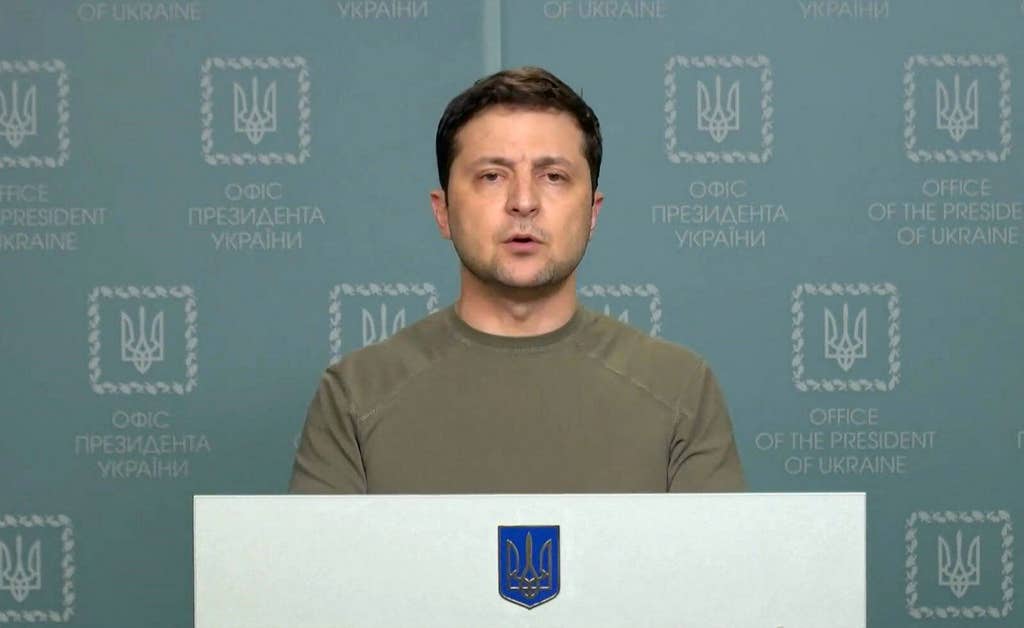An almost forgotten clause in the EU treaties can provide Ukraine with the security guarantees it needs without joining NATO which Russia considers a threat to its security and used as a pretext for its invasion.
As previously reported, Ukraine’s President Volodymyr Zelensky signed on 28 February his country’s application for membership in the EU in the middle of fierce resistance against the Russian invasion and Russian troops advancing to the capital city Kyiv.
The application was mainly symbolic since there is no “fast track procedure” for joining the EU which could help Ukraine in its fight to survive as an independent and democratic country.
Zelensky has also repeatedly appealed to NATO for declaring a no-fly zone in the Ukrainian airspace but this has been rejected by NATO. His appeals for concrete support to Ukraine to defend itself was heeded by the EU which activated a fund for arms deliveries and by EU member states that are providing anti-tank and anti-aircraft weapons and protective equipment.
A quick and positive EU response to Ukraine’s application would no doubt send an important signal and bolster Ukraine’s morale but may also affect the chances to a cease-fire. Russia does not only oppose Ukrainian membership in NATO but also in the EU.
At most, the application set in motion a process which will take time, according to European Commission President von der Leyen. While welcoming Ukraine’s membership application, she warned in an interview that there is no getting around the “clear path” set out in the EU’s treaties.
Since the application was submitted, the war has intensified, with indiscriminate shelling of civilian targets and failed attempts to establish safe humanitarian corridors for the hundreds of thousands of civilians fleeing cities that have been occupied by Russian troops or are under attack.
Kremlin continues to call on Ukraine to surrender unconditionally before it will agree to a cease-fire. This is unacceptable for Ukraine. But as Russia is suffering setbacks, it might escalate the war even more to achieve its goals. The Ukrainian solders are fighting for their country’s freedom but Russia’s superior military power might overwhelm Ukraine if the war continues.
Both sides will have to compromise and even make painful concessions if they want to solve the conflict by diplomacy and negotiations. Until now, EU’s official position has been that every country is free to choose the alliances it wants – in Ukraine’s case both NATO and EU. The West seemed even to prefer that Ukraine first joins NATO and not the EU.
But what Russia most fears is a Ukraine that is a member of NATO. What Ukraine most needs for its social and economic development is EU membership, sharing its European values on the rule of law, democracy, and minority rights, and being part of the internal market.
Mutual defence clause
NATO has article 5 which says that an attack on one member of NATO is an attack on all members. The Baltic countries and other eastern European countries that joined NATO feel safe and are convinced that it works as a deterrence against Russia.
EU has a similar mutual defence clause – article 42(7) in the Treaty on the European Union (TEU). It says that, “If a Member State is the victim of armed aggression on its territory, the other Member States shall have towards it an obligation of aid and assistance by all the means in their power, in accordance with Article 51 (right of self-defence) of the United Nations Charter”.
There is also a link to NATO in the EU treaty. “Commitments and cooperation in this area shall be consistent with commitments under the North Atlantic Treaty Organisation (NATO), which, for those States which are members of it, remains the foundation of their collective defence and the forum for its implementation.”
Is there any preparedness in the EU for applying the mutual defence clause and could it be relevant for finding a political solution to the war in Ukraine?
“The EU and its Member States engage in regular exercises to test mutual assistance and response mechanisms provided in the Treaties,” a Commission spokesperson replied to The Brussels Times. He declined to comment on specific examples or possible scenarios for the activation of Article 42(7).
The Treaty is clear in its definition of when Member States can invoke Article 42(7), he added. This remains a sovereign decision belonging to the Member State.
M. Apelblat
The Brussels Times

